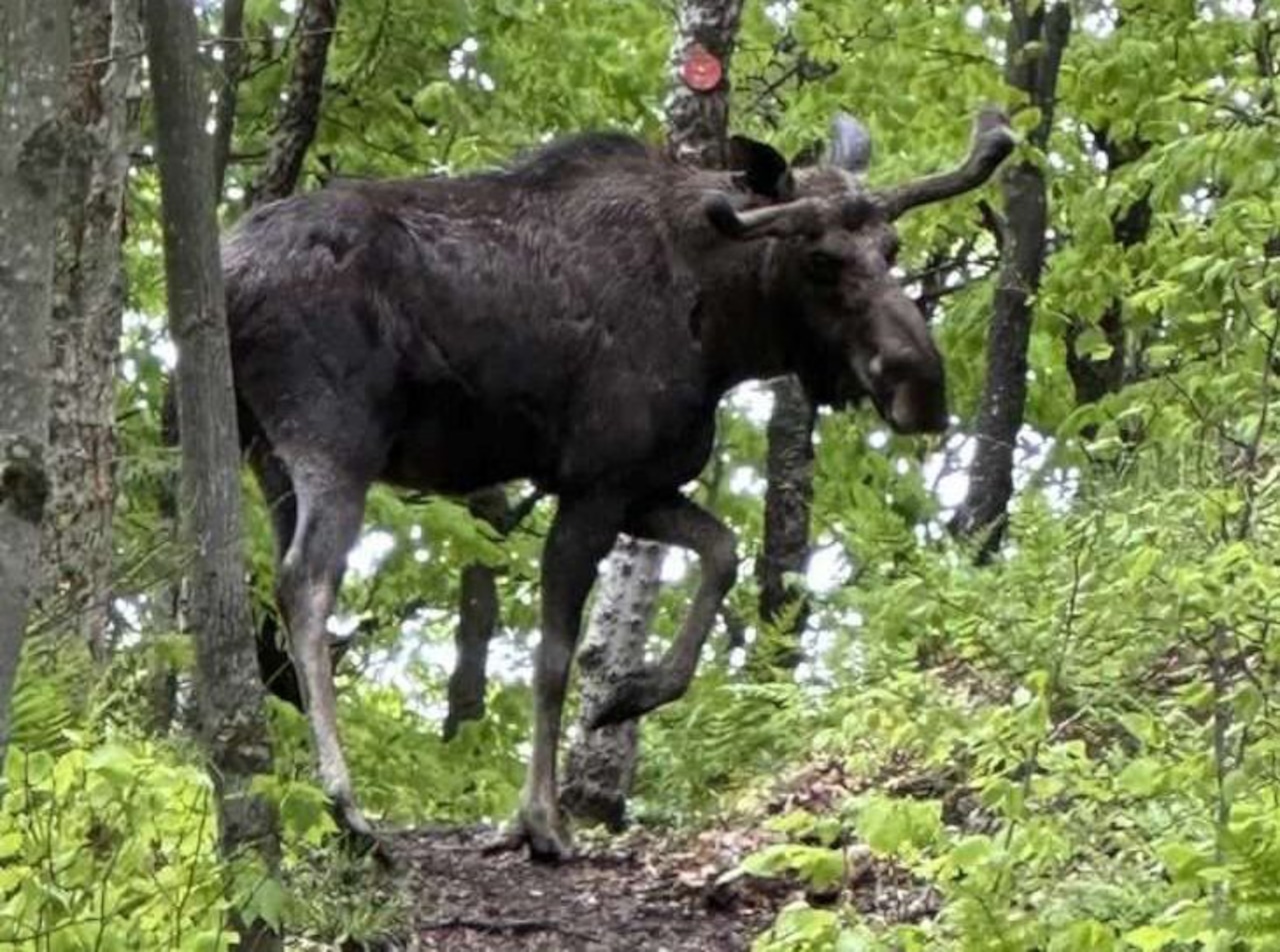The immovable moose that closed Goodman Mountain Trail earlier this year is dead.
The New York State Department of Environmental Conservation announced today that it “humanely euthanized” the bull moose “after confirming a significant decline in its health.”
“Following a thorough assessment, DEC experts made the difficult decision to euthanize the moose due to its deteriorating condition and low likelihood of survival,” DEC Director of the Division of Fish and Wildlife Jacqueline Lendrum said.
The moose was first sighted near the summit of Goodman Mountain in May by hikers who reported that it allowed them to get close.
The moose showed no signs of aggression, DEC said last month, but in general moose can be dangerous if approached too closely.
After attempts to haze the moose away from the trail failed, DEC temporarily closed it to protect both the moose and hikers.
Meanwhile, DEC and the state wildlife veterinarian monitored the animal throughout the summer using trail cameras and in-person site visits. They noticed a progressive decline in the animal’s body condition and delayed response to human presence.
During a site visit on Aug. 6, wildlife biologists and the state veterinarian observed advanced signs of disease, including severe emaciation, and determined euthanasia to be the most humane course of action.
“The moose’s health had clearly deteriorated over time,” said Dr. Jennifer Bloodgood, Cornell College of Veterinary Medicine Assistant Professor of Practice at the Department of Public and Ecosystem Health.
“Performing a necropsy will help us to understand the cause of the decline and give us more information on threats to moose health in New York State,” she said.
DEC will conduct a post-mortem necropsy to help determine the potential cause of the moose’s failed health and unusual behavior and share information as it becomes available.
In the short term, the Goodman Mountain Trail, part of the popular Tupper Lake Triad challenge, will remain closed while DEC completes a study of the area to fully evaluate evidence of the moose’s past foraging behavior and habitat range.
Forest rangers will continue patrolling the area. Once DEC’s work is completed, the barriers will be removed and the trail reopened. DEC will update the public when the area is clear and the trail is open for public access.
For more information about the closure, contact DEC Region 6 Office of Natural Resources at (315) 785-2263.
Steve Featherstone covers the outdoors. Contact him at sfeatherstone@syracuse.com.
If you purchase a product or register for an account through a link on our site, we may receive compensation. By using this site, you consent to our User Agreement and agree that your clicks, interactions, and personal information may be collected, recorded, and/or stored by us and social media and other third-party partners in accordance with our Privacy Policy.

